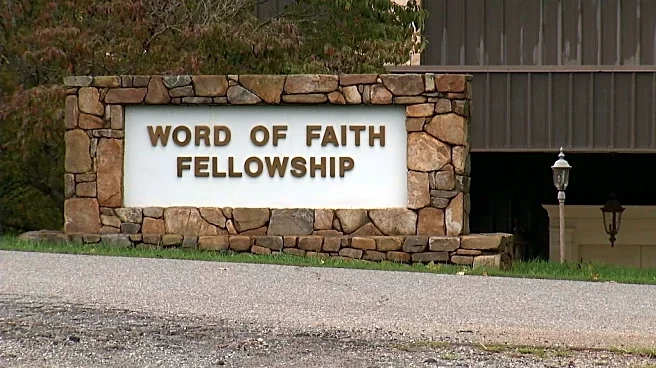What's Happening?
The second episode of 'IT: Welcome to Derry' premiered on HBO Max, offering viewers a chilling experience with its unsettling scenes. Co-created by Andy and Barbara Muschietti, the series is a prequel to the 'It' movies, exploring the origins of Pennywise
in the fictional town of Derry, Maine. The episode, set in 1962, follows the character Lilly Bainbridge as she navigates a nightmarish scenario in a supermarket, orchestrated by the malevolent Pennywise. The episode delves into themes of trauma and the darker aspects of the American Dream, using horror elements to convey its narrative.
Why It's Important?
The series taps into the cultural fascination with horror and nostalgia, drawing on Stephen King's rich literary universe. By exploring the sinister undercurrents of seemingly idyllic settings, the show resonates with audiences who appreciate psychological horror. The portrayal of Pennywise's terror in a familiar setting like a supermarket challenges viewers' perceptions of safety, making the horror more relatable and impactful. This approach not only entertains but also prompts reflection on societal issues such as trauma and mental health.
What's Next?
As the series progresses, viewers can expect further exploration of Pennywise's influence on the town of Derry and its inhabitants. The show is likely to continue blending horror with social commentary, offering a deeper look into the characters' psyches and the town's dark history. Fans of the genre and Stephen King's work will be keen to see how the narrative unfolds and what new horrors await in subsequent episodes.
Beyond the Headlines
The series' depiction of horror in everyday settings raises questions about the nature of fear and its impact on individuals and communities. It also highlights the importance of addressing mental health issues, as characters grapple with trauma and societal pressures. The show's success could influence future horror productions to incorporate similar themes, blending entertainment with meaningful commentary.
















